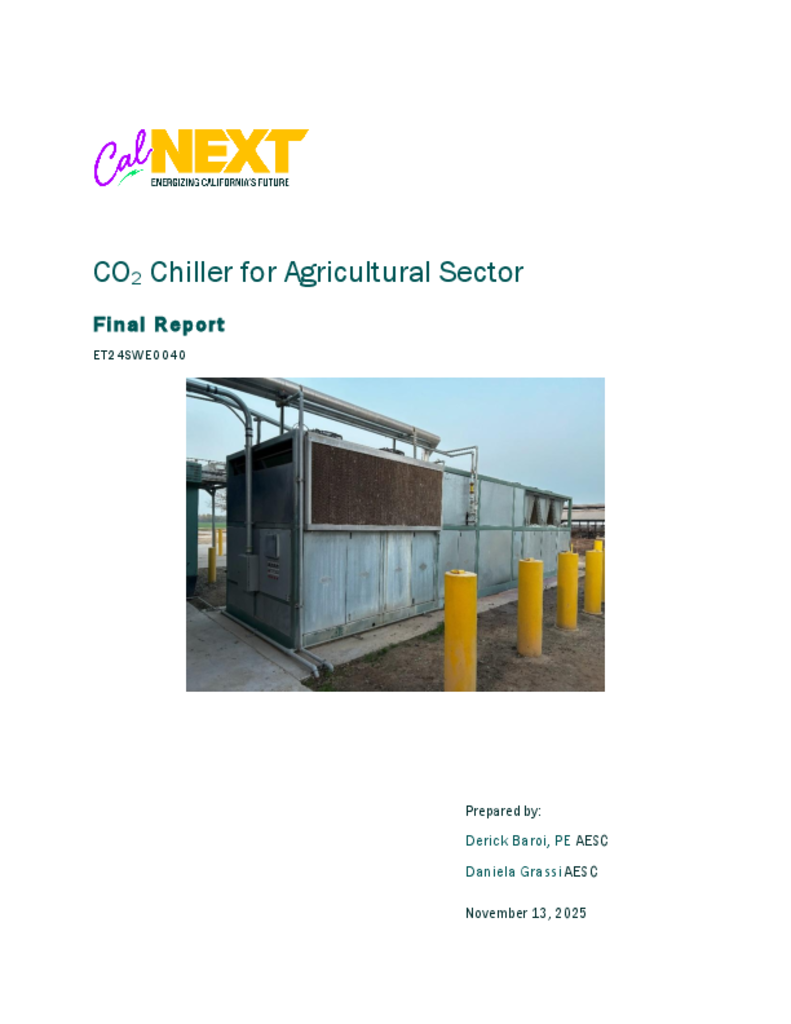ET24SWE0040 - CO2 Chiller for Agricultural Sector
The proposed project is a field demonstration of natural refrigerant (CO2) for high volume milk cooling on the dairy farm. Traditional methods of cooling high flow rates of milk have evolved over time from the use of different synthetics such as CFC’s, HCFC’s, and HFC’s. This proposed CO2 chiller is really the first to offer a true natural refrigerant for today’s dairy farm use to cool the milk efficiently from 98°F down to 36°F. By doing this, the GWP is vastly reduced, and is far and away the primary justification of utilizing CO2. The sustainability of using this gas overtakes any concerns of higher pressures and trans-critical natures of the natural refrigerant. Additionally, the use of CO2 as the refrigerant brings an extraordinary benefit of heat reclamation for hot water production – a leading use of fossil fuel energy on the dairy farm. The high-pressure side of the refrigeration system can produce all the hot water needed for a modern dairy operation. This project will study the energy reduction and GHG reduction potential of the proposed chiller for use in dairy milk cooling applications through field monitoring at the selected sites.
This project demonstrated the use of carbon dioxide (CO₂) refrigeration systems for high-volume milk cooling at two dairy farms in California’s Central Valley. Its primary objective was to evaluate the performance and potential advantages of CO₂-based chillers compared to conventional synthetic refrigerant systems. Key performance metrics included electric energy savings in kilowatt hours (kWh), peak demand reduction in kilowatts (kW), greenhouse gas (GHG) emission reductions, lifecycle cost savings, and other environmental benefits. The project also assessed market readiness, opportunities, and barriers to adoption within California’s dairy industry, with the aim of integrating CO₂ chiller technologies into statewide energy efficiency programs through deemed and custom measures.

